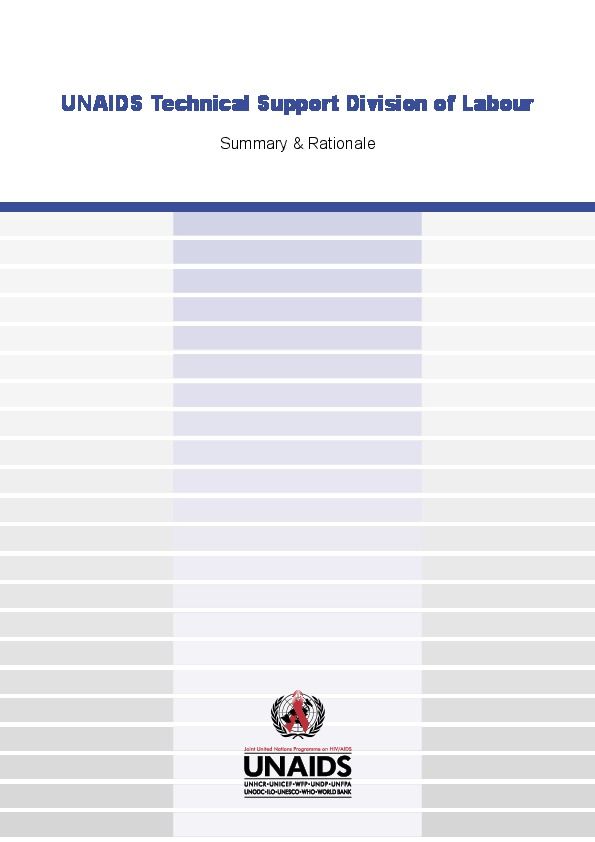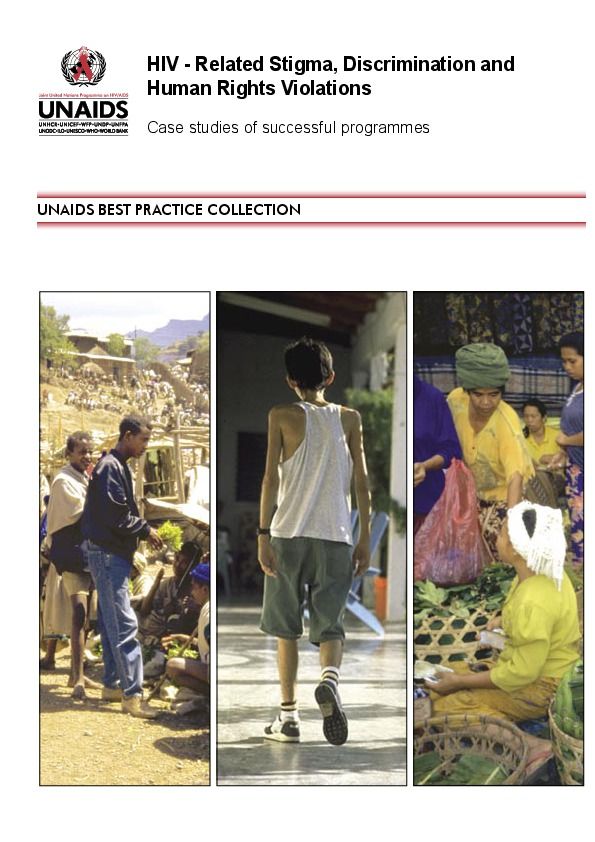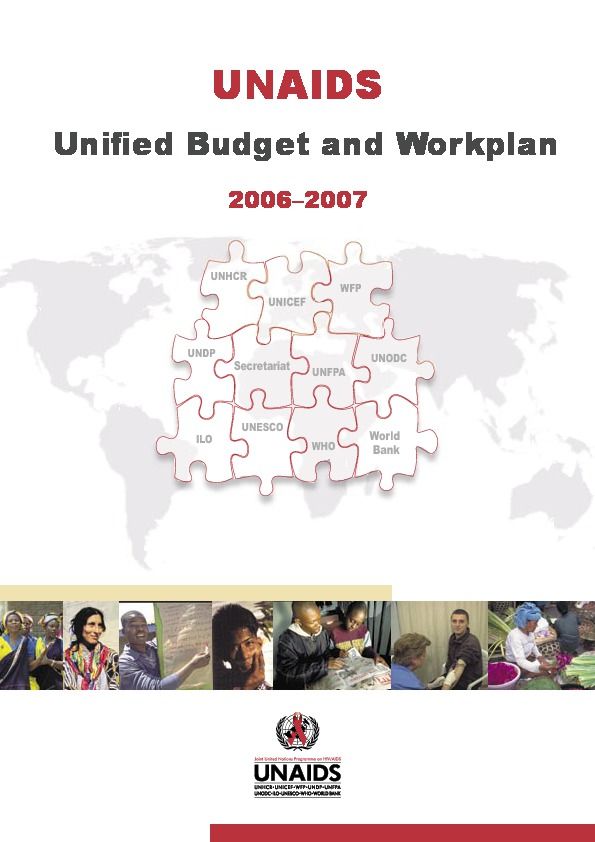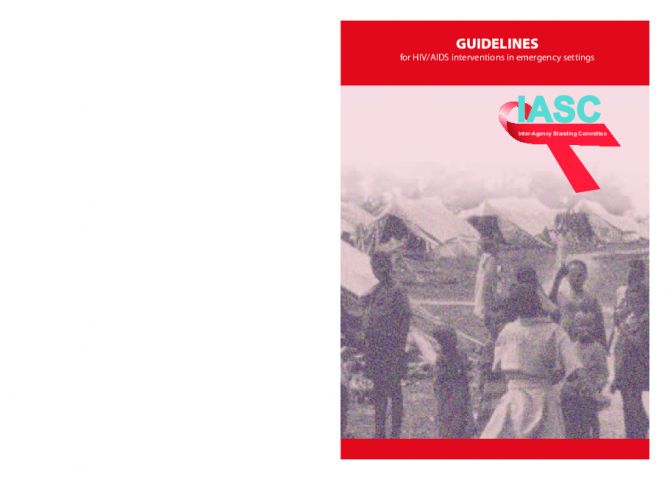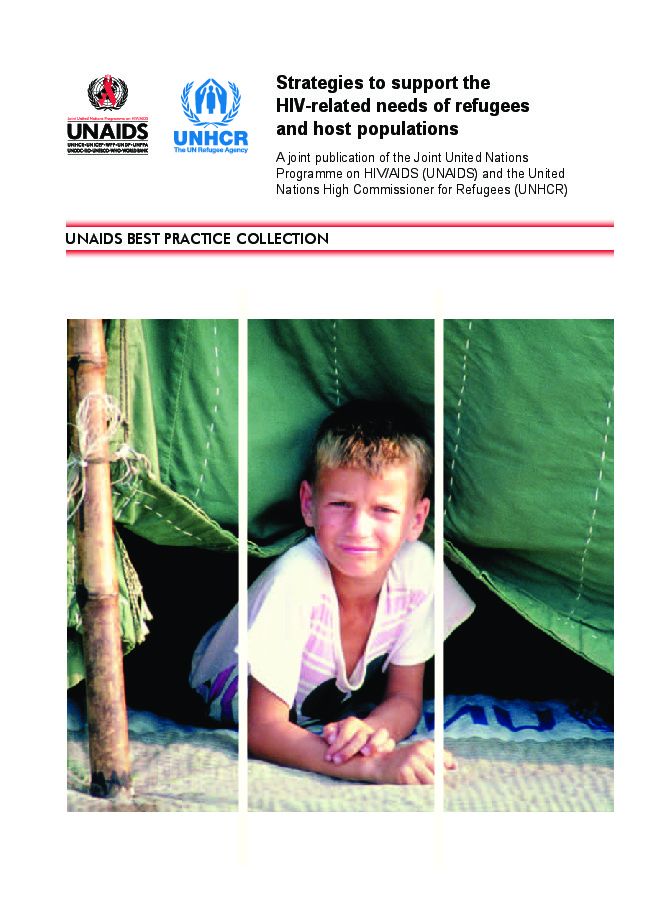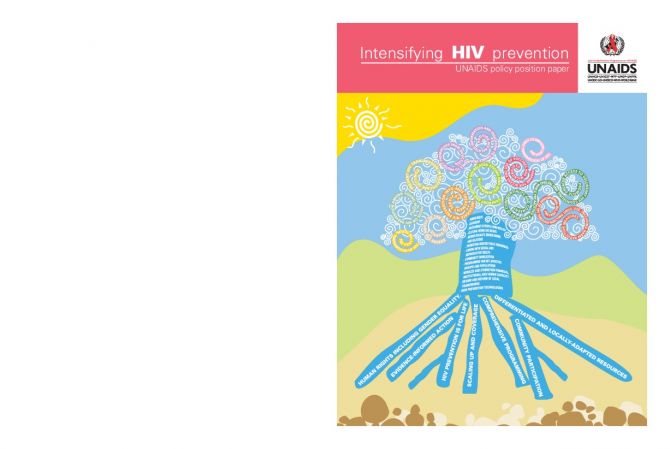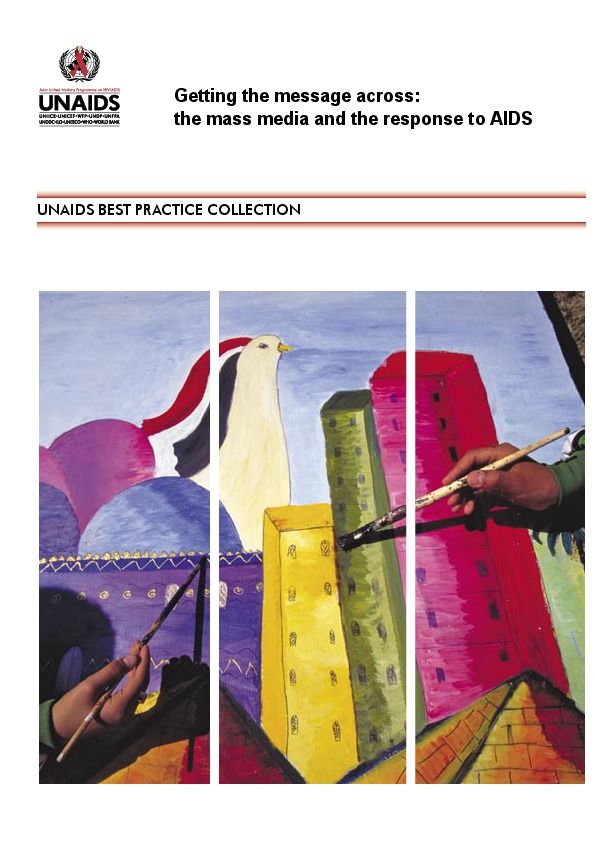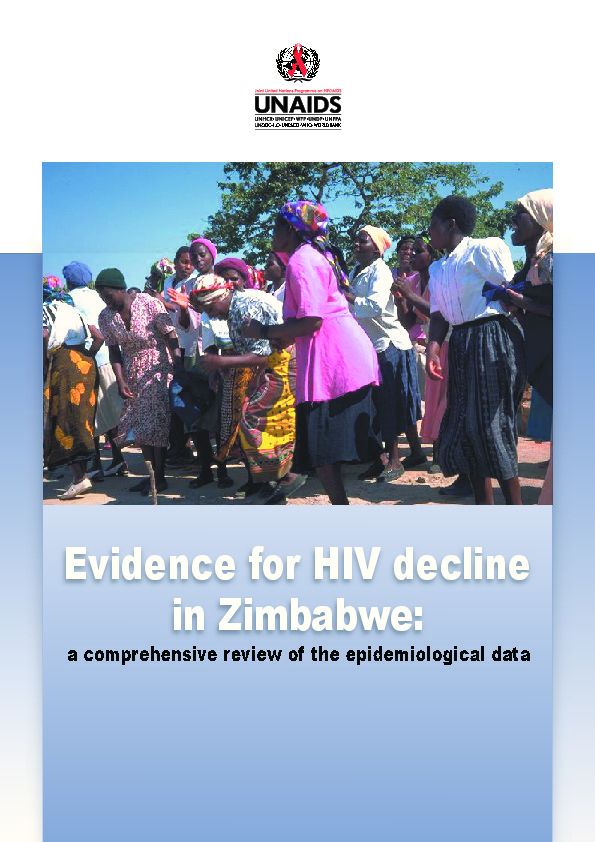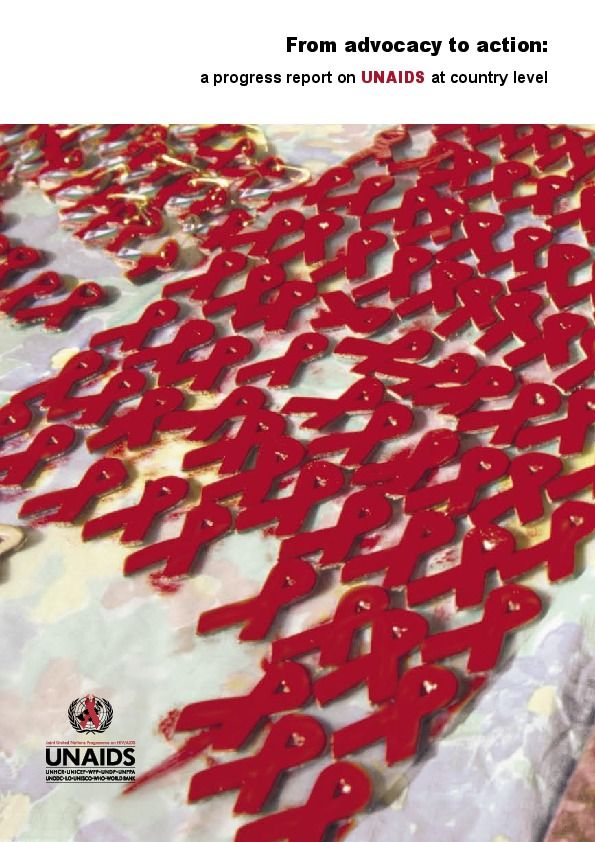Documents
UNAIDS Technical Support Division of Labour Summary & Rationale
30 August 2005
This Summary document outlines the new approach to the technical-support division of labour, which complements a number of other initiatives underway to reinforce the rational division of labour within UNAIDS at global and country levels.UNAIDS Secretariat and Cosponsors were tasked with using this framework to develop a Consolidated UN Technical Support Plan for AIDS (2006-2007). This will become an iterative process undertaken by the Global Joint Problem-Solving and Implementation Support Team (GIST).
Documents
UNAIDS Unified Budget and Workplan 2006–2007
03 November 2005
The vision that led to the creation of UNAIDS was that the UN would be more effective in facing the exceptional challenges posed by AIDS if its institutions worked together in a more coordinated and coherent way. The Unified Budget and Workplan has been instrumental in moving UNAIDS towards this vision. It provides an overall framework for the entire range of action on AIDS by the UNAIDS Cosponsors and the Secretariat, but is fexible enough to respond to the ever evolving AIDS epidemic. The Unified Budget and Workplan sets out the specific commitments of each part of the Joint Programme, including the results each Cosponsor and the Secretariat will seek to achieve, matched with resource requirements.
Documents
GUIDELINES for HIV/AIDS interventions in emergency settings
17 November 2005
The Guidelines for HIVAIDS interventions in emergency settings provide valuable information for organizations and individuals involved in developing responses to HIVIAIDS during crises. Topics covered include: Prevention and preparednessResponding to sexual violence and exploitationFood aid and distributionSafe blood supplyCondom supply and usageSpecial groups: women and children, orphans, uniformed servicespersonnel, refugeesSafe deliveriesUniversal precautionsPost exposure prophylaxisWorkplace issues, andHandling discrimination The Guidelines include a Matrix, designed to present response information in a simplified chart, which can be photocopied readily for use in emergency situations. The Guidelines also include a companion CD-ROM, which provides all the information in the printed Guidelines document, as well as documents in electronic format (AcrobatIPDF, Word, HTML). Designed for ease of use, the CD-ROM launches automatically on most computers, and uses simple browser-style navigation. Published by the Inter-Agency Standing Committee, the Guidelines give responders a versatile tool for quickly and easily accessing the latest information on HIVIAIDS in emergency settings.
Documents
Strategies to support the HIV-related needs of refugees and host populations
17 November 2005
In this study, UNHCR and UNAIDS seek to inform and support key decision-makers on HIV-related issues facing refugees, other populations of concern to UNHCR, and the populations of host countries. The content of this document focuses on sub-Saharan Africa, but the concepts discussed are applicable to refugee situations outside this region.
Documents
Intensifying HIV prevention. UNAIDS policy position paper
05 December 2005
The primary goal of this policy position paper is to energize and mobilize an intensification of HIV prevention with an ultimate aim of universal access to HIV prevention and treatment. The paper defines the central actions that must be taken to arrest the spread of new HIV infections. It identifies what needs to be done to speedily and effectively bridge the HIV prevention gap, building on synergies between HIV prevention and care, and to ensure the sustainability of HIV treatment scale-up in the present context. It highlights the role of UNAIDS, in relation to intensifying HIV prevention and points the ways in which jointly supportive action can be achieved. This paper is directed towards all those who have a leadership role in HIV prevention, treatment and care.
Documents
Getting the message across: the mass media and the response to AIDS
15 December 2005
The three case studies in this report are examples of what can be achieved when the media are used creatively towards positive outcomes. They offer lessons from experi-ence that will be of value to people everywhere who are interested in harnessing the power of the mass media to help in the response to AIDS.
Documents
Evidence for HIV decline in Zimbabwe: a comprehensive review of the epidemiological data
04 January 2006
In this report, an assessment is made of the validity of the decline in HIV prevalence observed at antenatal clinics in Zimbabwe by examining this data closely from an epidemiological perspective, and by assessing their consistency with epidemiological and behavioural information from a range of other national sources and in-depth local community studies. Using the available behaviour data and comparison of observed trends in HIV prevalence with counterfactual trends in HIV prevalence—i.e. those expected in the absence of behaviour change—generated by fitting an epidemiological model, assessment of the plausibility that behaviour change has contributed to the recent trends in HIV prevalence and incidence. The findings in this report are based on information collected in an epidemiological review of data on the HIV epidemic in Zimbabwe carried out between November 2004 and June 2005.
Documents
Intensifiying HIV prevention (small card)
25 January 2006
The Joint United Nations Programme on HIV/AIDS (UNAIDS) brings together ten UN agencies in a common effort to fight the AIDS epidemic. As the main advocate for global action against AIDS, UNAIDS leads, strengthens and supports an expanded response to the epidemic. It aims to prevent HIV transmission, provide care and support to those living with HIV, reduce the vulnerability of individuals and communities to AIDS, and alleviate the impact of the epidemic.
Documents
From advocacy to action: a progress report on UNAIDS at country level
31 March 2006
This report summarizes UNAIDS’ assistance to countries in 2004 and 2005. Drawn from the reports of UNAIDS’ Country Coordinators from over 75 countries. The report covers the following 5 areas: Basic information on UNAIDS and how it operates, especially at country-level; how UNAIDS is contributing to implementation of the “Three Ones” principles; the many ways in which UNAIDS has assisted countries in strengthening their responses to AIDS; how UNAIDS is working to enhance the United Nations system’s capacity to assist countries in responding to AIDS and how UNAIDS plans to meet key challenges for the future.

